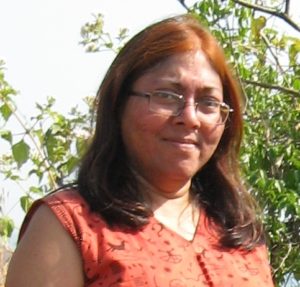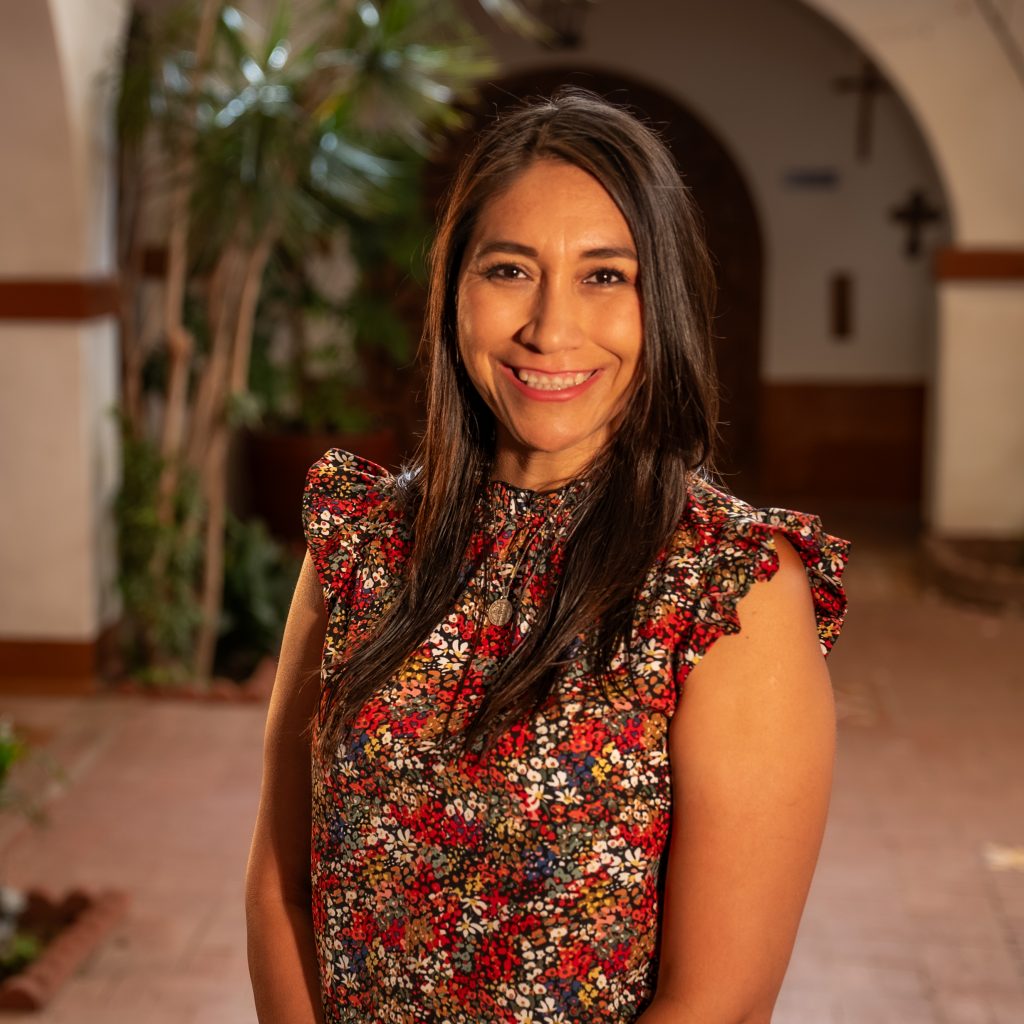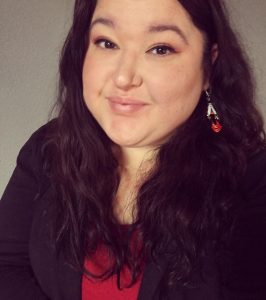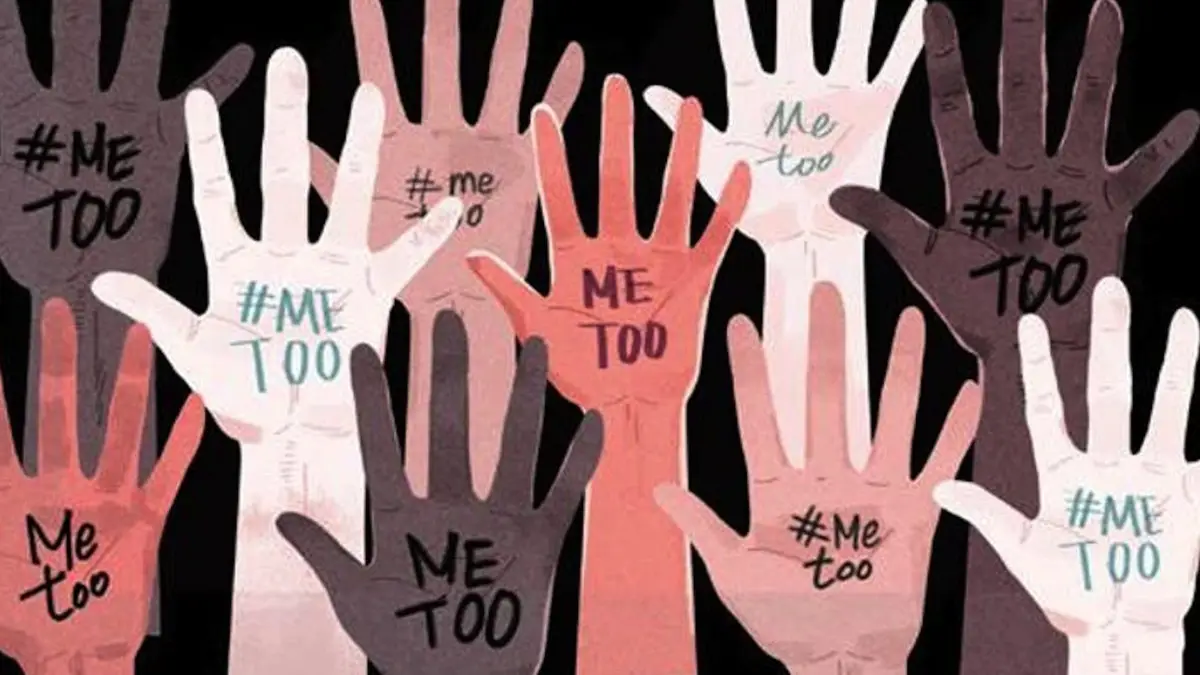Chapter 15: ‘#me too’ and Beyond in the U.S. and India
CHAPTER 15: ‘#ME TOO’ AND BEYOND IN THE U.S. AND INDIA
Companion Website by: Samuel Ellyson and Maggie Flanagan
TABLE OF CONTENTS:
MORE ABOUT THE PARTICIPANTS:

India

Arizona

New Mexico
Albertina Almeida
VIDEOS FEATURING THE PARTICIPANTS:
CHAPTER STUDY RESOURCES:
USE THESE TO HELP FURTHER YOUR UNDERSTANDING OF THE CHAPTER!
CHAPTER SUMMARY:
‘me too.’ (#Metoo): what began as a small-scale social media campaign in 2005 became a nation—and world—wide movement in 2017. Sparked by allegations of sexual assault against American producer Harvey Weinstein, the hashtag #metoo inspired countless survivors in the U.S. to come forward with their stories on social media and beyond. The movement also made some strides in India, where, as in the U.S., countless high-profile women in the entertainment industry, politics, journalism, and academia have publicly accused colleagues of sexual violence, with many of these accusations ending in career loss or even legal indictment of the accused.
This chapter focuses on “me too” and “beyond” in that it situates the movement just as its founder, Tarana Burke, encourages us to: in relation to decades-long conversations and activism aimed at understanding and eradicating gender-based violence. The three highlighted speakers center the experiences of those who are most vulnerable to gender-based violence in both India and the U.S. and provide insight into why various movements—including me too—as well as legal reforms fail to fully protect them against harm.
This chapter intersects nicely with gender and human rights, intersectionality.
GENERAL RESOURCES:
VIDEOS:
PODCASTS:
FURTHER TOPICS:
Sexual Harassment/Assault/Violence:
Sexual Harassment in the Workplace:
Recognizing Sexual Harassment/What You Can Do:
Sexual Violence in Marginalized Communities:
Low-income Women and Sexual Violence:
Tourism and Sexual Assault:
Sexual Assault by Family/Taboo:
Barriers:
Women’s access to justice:
Immigration Status:
Use of Immigration Status for Coercive Control in Domestic Violence Protection Orders
Low-Wage Immigrant Workers are Especially Vulnerable to Sexual Abuse. How Can They Say #MeToo?
Dynamics of Sexual Assault and the Implications for Immigrant Women
Undocumented Sexual Assault Victims Face Backlash and Backlog
Other forms of oppression play a role in why survivors don’t seek help:
Language Barrier:
What is the Connection Between Language Access, Sexual Violence, and Racism?
How Language and Cultural Barriers Prevent Some Victims from Accessing Sexual Assault Exams?
Survivors with Limited English Proficiency: Barriers to Access
Serving Immigrant Survivors or Survivors with Limited English Proficiency
Language Barrier Poses Extra Challenge to Latinx Domestic Violence Survivors
Movements:
#metoo movement:
The #MeToo Movement: History, Sexual Assault Statistics, Impact
Tarana Burke Doesn’t Define #MeToo’s Success by Society’s Failure
The #MeToo Movement in the United States: Text Analysis of Early Twitter Conversations
Parsing the ‘Me’ in #MeToo: Sexual Harassment, Social Media, and Justice Infrastructures
#metoo movement in India:
#metoo movement in the US:
Women’s Movements in India and Feminism:
India:
Vishaka Judgment:
Bhanwari Devi:
Caste system and sexual assault in India:
LOSHIA/LOSHA:
Caste System and Access to the Internet:
Representation of Women in Bollywood films:
Survivors:
Latinx survivors of gender violence:
Immigrant Survivors of Sexual Assault:
Indigenous survivors of sex trafficking and survival sex work:
Laws/Policies/Law Enforcement/Violations:
Laws, Policies:
UN/International Law:
Facts and Figures: Ending Violence Against Women
16 Days of Activism against Gender-Based Violence
Hashtag Women’s Rights: 12 Social Media Movements You Should Follow
Commission on the Status of Women
Rapporteurship on the Rights of Women
Sexual and Gender-Based Violence against Refugees, Returnees, and Internally Displaced Persons
Conflict-Related Sexual Violence
United Nations Declaration on the Rights of Indigenous Peoples (UNDRIP)
United Nations Permanent Forum on Indigenous Issues (UNPFII)
Law Enforcement Response:
DHS Immigration Laws/Violations in Detention:
Databases/Acts/Organizations:
Databases:
MMIWG/MMIP/SBI:
Urban Indian Health Institute:
Seventh Generation Fund for Indigenous Peoples:
Freedom of Information Act:
Teatro Dignidad:
Consortium on Gender-Based Violence at the University of Arizona:
Other Topics:
Femicide:
Social media for activism against gender violence:
La Familia:
Political Asylees:
Promotora Model:
HUMAN RIGHTS TRAINING:
Using Art to Cope with Trauma:
How Can Art Therapy Help With Trauma?
Women’s Transformational Program: A Sexual and Reproductive Health Program
3 Ways to Process Trauma with Art
Healing Arts: Recovering from Sexual Assault Through Creativity
Working with Sexual Abuse in Art Therapy
Sexual Violence in Conflict: Youth Speak Out Through the Arts
Data Holes in Missing Persons Databases:
Influence of Borders:
Epidemic of Missing and Murdered Indigenous Girls and Women:
mORE Resources/How to Get Involved:
UVisa:
How to be an Indigenous Ally:
Resources for Survivors:
Ways to Help/Get Involved:

